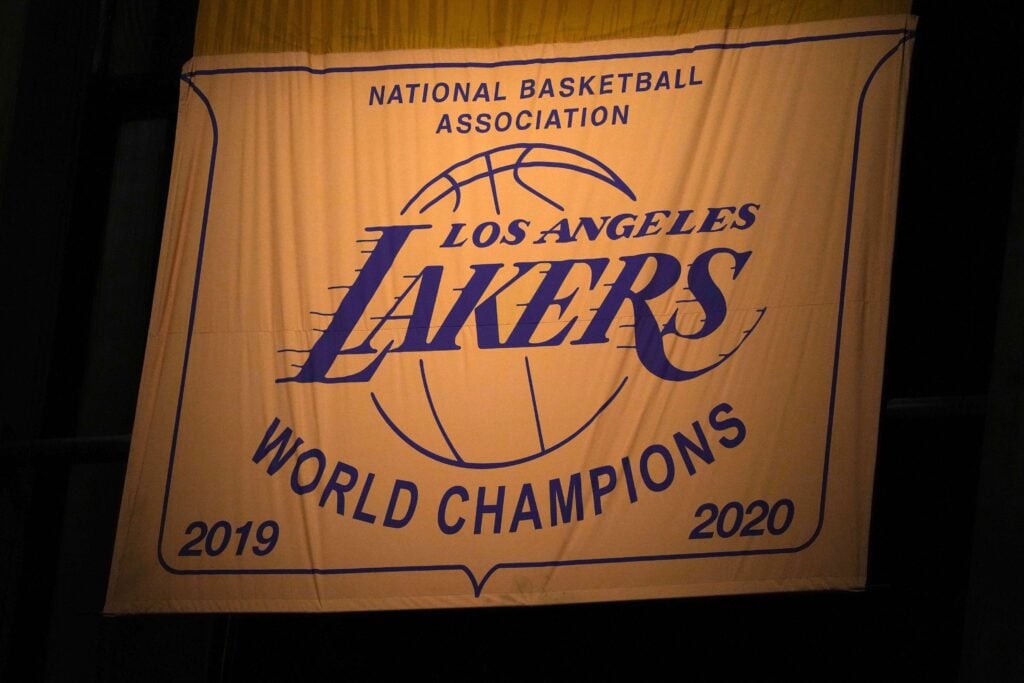LOS ANGELES – The Buss family has reached an agreement to sell majority ownership of the Los Angeles Lakers to billionaire investor Mark Walter. ESPN reports that the sale values the Lakers at approximately $10 billion—the highest valuation in U.S. professional sports history.
Lakers Sale Saved Them From ‘Imminent’ Financial Troubles
The Buss family will retain a minority stake of just over 15%, while Jeanie Buss will continue to serve as team governor “for at least a number of years,” according to sources close to ESPN’s Ramona Shelburne. Walter fully endorsed her continued leadership as part of the deal.
Walter, CEO of TWG Global, has held a stake in the Lakers since 2021. That year, he purchased Phil Anschutz’s 26% share and secured the right of first refusal on the majority ownership. His business portfolio already includes stakes in the Los Angeles Dodgers, Los Angeles Sparks, Chelsea FC, and multiple racing teams through TWG Motorsports.
A Once-Golden Dynasty, Now House Poor
The Lakers sale represents more than a changing of hands. It is, in many ways, a rescue operation. For years, analysts described the Lakers as “house poor.” On ESPN’s Hoop Collective, Tim Bontemps explained, “It’s a massive thing for basketball fans, for the NBA, because for a long time the Lakers… you [Windhorst] have, I have, described them in the past as house poor.”
He continued, “It means you own something but you don’t have a lot of actual cash. And the Lakers are a really weird team in modern sports.”
Unlike most major franchises, the Lakers were the sole asset of the Buss family. “They are not, say, Steve Ballmer, who has all these other businesses,” Bontemps added. “For the Buss family, the Lakers have been the stars, the sun and the moon for them on every front.”
This singular reliance has limited the team’s ability to operate like its peers. Despite their global brand, the Lakers often lacked the infrastructure and financial agility of other big-market teams.
Walter’s Winning Blueprint
Walter’s track record gives the Lakers hope. His ownership group turned the Dodgers from underachievers into a perennial contender. The Dodgers have won more than 60% of their games under his leadership. In a survey last year, the Athletic surveyed 40 executives and coaches from the four main American Sports leagues. The Dodgers were voted the second best front office behind only the Oklahoma City Thunder.
And how did he do it? “By hiring the best for the job in leadership roles,” notes one league insider.
That same approach now comes to Los Angeles’ premier basketball team. The Lakers sale opens the door to bigger budgets and deeper investments—into scouting, analytics, coaching, and eventually, perhaps, team-owned infrastructure.
A Legacy of Glory, a Future of Uncertainty

Since Jerry Buss bought the team in 1979, the Lakers have won 11 titles—the most in that span by any NBA team. When Buss passed in 2013, ownership passed to his six children. A 2017 legal battle made Jeanie Buss the controlling owner, but the underlying financial structure remained fragile.
While the team landed LeBron James in 2018 and won a championship in 2020, its overall performance over the past 15 years has wavered. New ownership brings promise.
Tim MacMahon summarized it well: “They had been the preeminent mom-and-pop shop.” He cautioned that spending freely isn’t always a fix, citing Matt Ishbia and the Phoenix Suns. Still, he acknowledged that now, the luxury tax won’t be as much of a concern for the Lakers.
TV Deals, Arena Woes, and the Second Apron
In today’s NBA, national TV revenues are shared equally. But local TV deals and arena revenue make the difference. The Lakers have the league’s largest local deal with Spectrum but do not own Crypto.com Arena. That limits their earnings from concessions and naming rights.
Brian Windhorst noted that the Lakers’ local deal once paid them in a single week what the small-market Grizzlies earned over an entire season. “At some point,” Bontemps warned, “paying an exorbitant number even for Lakers games… that’s going to run out.”
He added, “Whenever that did run out, the Lakers weren’t going to be in a position to keep up with everyone else. But now, that’s irrelevant.”
Thanks to the Lakers sale, that future crisis has been averted.
A Second Chance at Sustained Success
The Lakers still must follow the NBA’s new second-apron rules. But they now have the means to invest in long-term success. That includes building out a stronger basketball operations staff, owning their own facility, and improving player support systems.
For decades, the Lakers were royalty in name but not always in practice. The Lakers sale gives them a path to reclaim both.
© Jayne Kamin-Oncea-Imagn Images
The post Lakers Sale Saved Them From ‘Imminent’ Financial Troubles appeared first on Last Word On Basketball.